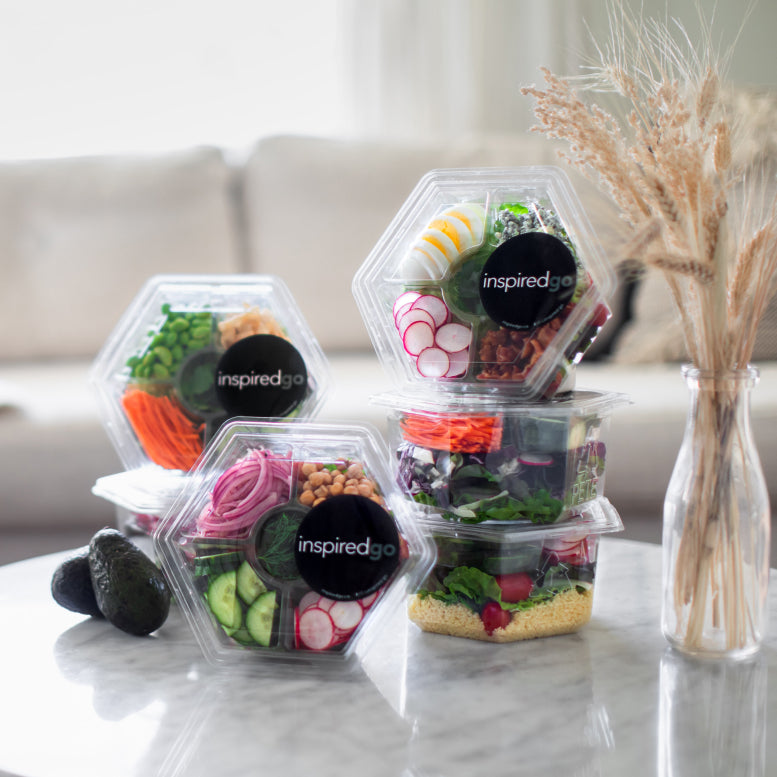Can Vegans Eat Bread And Pasta?
Table of Contents
1. Vegan-Friendly Options in Bread and Pasta
2. Is a Vegan Diet Healthy?
3. How Do Vegan Meal Delivery Services Ensure Balanced Nutrition?
4. How Does Inspired Go Make Vegan Eating Healthier?
1. Vegan-Friendly Options in Bread and Pasta
Bread and pasta are commonly consumed food items in various diets worldwide. But when it comes to vegan diets, can bread and pasta be included? Without a doubt, most types of bread and pasta can be enjoyed by vegans. The primary ingredients for both typically include wheat flour, water, and yeast for bread, and wheat flour and water for pasta. However, it's essential to be aware that not all bread and pasta are vegan-friendly. Some bread types may contain dairy products or honey, and certain pasta types might include eggs or other animal-derived ingredients. For individuals following a vegan diet, it is recommended to always check the ingredients list to ensure these food items align with their dietary preferences.
Order fresh salads today →


2. Is a Vegan Diet Healthy?
A vegan diet, when properly planned, can be incredibly healthy and nutritionally balanced. Plant-based meals are rich in vitamins, minerals, antioxidants, and fiber, all of which contribute to improved digestion, reduced inflammation, and better overall health. Vegan diets are often lower in saturated fats and cholesterol, which supports heart health and reduces the risk of chronic diseases. However, a balanced vegan diet requires careful consideration of essential nutrients such as vitamin B12, iron, calcium, and omega-3 fatty acids. Vegan meal delivery services address these concerns by offering pre-portioned, nutrient-dense meals designed to cover daily dietary requirements. With expert chefs and dietitians crafting balanced menus, vegan meal delivery provides a reliable way to enjoy the benefits of plant-based eating without nutritional gaps.
Choose your salads and schedule delivery →
3. How Do Vegan Meal Delivery Services Ensure Balanced Nutrition?
Balanced nutrition is a cornerstone of any vegan diet, and vegan meal delivery services excel at ensuring every meal meets essential dietary needs. Professional chefs and nutritionists collaborate to design menus that include protein-rich legumes, vitamin-packed vegetables, and healthy fats. Nutritional gaps, such as vitamin B12 or iron deficiencies, are addressed through fortified foods or supplements incorporated into meals. Meals are portioned to deliver optimal calorie counts while avoiding nutrient imbalances. Vegan meal delivery platforms also provide detailed nutritional information for transparency, allowing customers to track their intake effectively. With thoughtfully prepared meals delivered directly to customers’ doors, vegan meal delivery services simplify plant-based nutrition without compromising on taste or variety.
Get fresh salads and snacks delivered →
4. How Does Inspired Go Make Vegan Eating Healthier?
At Inspired Go, nutrition is at the core of every meal, ensuring that customers get the right balance of macronutrients and essential vitamins in every bite. Their vegan dishes include protein-packed legumes, fiber-rich vegetables, and healthy fats, eliminating the common pitfalls of nutritionally imbalanced vegan meals. Unlike some plant-based convenience foods, Inspired Go avoids highly processed ingredients, focusing instead on whole, nutrient-dense options. Each meal is carefully crafted by dietitians and chefs, ensuring that customers receive the necessary nutrients for energy, well-being, and long-term health. With detailed nutritional labeling and transparent meal planning, Inspired Go makes healthy vegan eating effortless.
Try our fresh, ready-to-eat salads →
Frequently Asked Questions
The key difference between vegan and vegetarian diets lies in the exclusion of animal products. Vegetarians avoid meat, poultry, and fish but may consume animal-derived products like eggs, dairy, or honey. Vegans, on the other hand, exclude all animal products, focusing solely on plant-based foods. Veganism is often a lifestyle choice, avoiding animal products in all forms, including clothing and cosmetics.
A vegan diet consists entirely of plant-based foods, including fruits, vegetables, grains, nuts, seeds, and legumes. It excludes all animal-derived products, such as meat, fish, dairy, and eggs. This diet emphasizes nutrient-dense, whole foods, though processed vegan alternatives are available. A vegan diet, when well-balanced, supports good health and environmental sustainability, making it popular for ethical, health, and ecological reasons.
Not all vegan diets are gluten-free. While veganism excludes animal products, gluten is a protein found in wheat, barley, and rye, which are plant-based and commonly included in vegan meals. To maintain a vegan and gluten-free diet, focus on naturally gluten-free foods like fruits, vegetables, rice, quinoa, and gluten-free grains. Always check labels for hidden gluten in processed vegan foods.
On a vegan diet, you can enjoy a wide variety of plant-based foods, including fruits, vegetables, legumes, nuts, seeds, whole grains, and plant-based dairy alternatives. Popular vegan dishes include stir-fries, salads, grain bowls, soups, and curries. Incorporating fortified foods or supplements ensures you meet nutrient needs like B12, iron, and omega-3s, making the diet balanced and enjoyable.
A vegan diet can be very healthy when balanced and diverse. It’s rich in fiber, vitamins, and antioxidants, while being lower in saturated fat and cholesterol. These factors contribute to better heart health, weight management, and reduced risk of chronic diseases. However, careful planning is essential to ensure adequate intake of nutrients like vitamin B12, iron, and protein for overall health.

